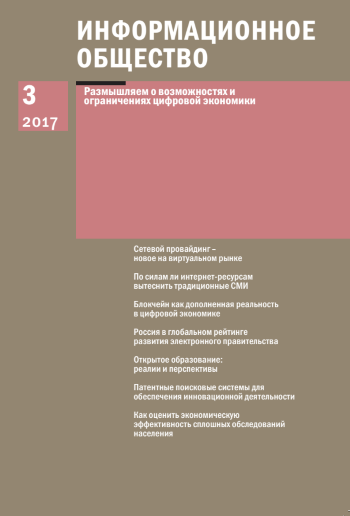Problems and Prospects for Open Distance Education Development in the Context of Electronic and Media Culture
Keywords:
open and distance learning, ODL, massive open online courses, blended learning, electronic culture, e-сulture, media culture, UNESCO.Abstract
The processes of development of electronic culture, informatizaton, globalization and technological openness have affected areas that have not changed for centuries, for example, the education system. Today it is undergoing a significant transformation, able to modify its nature and function. Open education is one of the manifestations of the electronic culture. The megatrend in this area is the transition from traditional education to a blended or open and distance learning. The article examines the opportunities and risks associated with the transition to an open distance education. The author explores the social and value aspects of this transformation, presents an overview of current level of development of open distance education in the world and Russia, analyzes the specific characteristics of European and Asian systems of open and distance learning. The investigation shows that the Russian system of distance education is at an early stage of development: there is lack of specialized open universities as well as international quality certification for the available distance learning programs. Special attention is paid to the role of UNESCO in supporting and promoting open and distance education, the creation of the legal and information fields to ensure its quality and availability.
